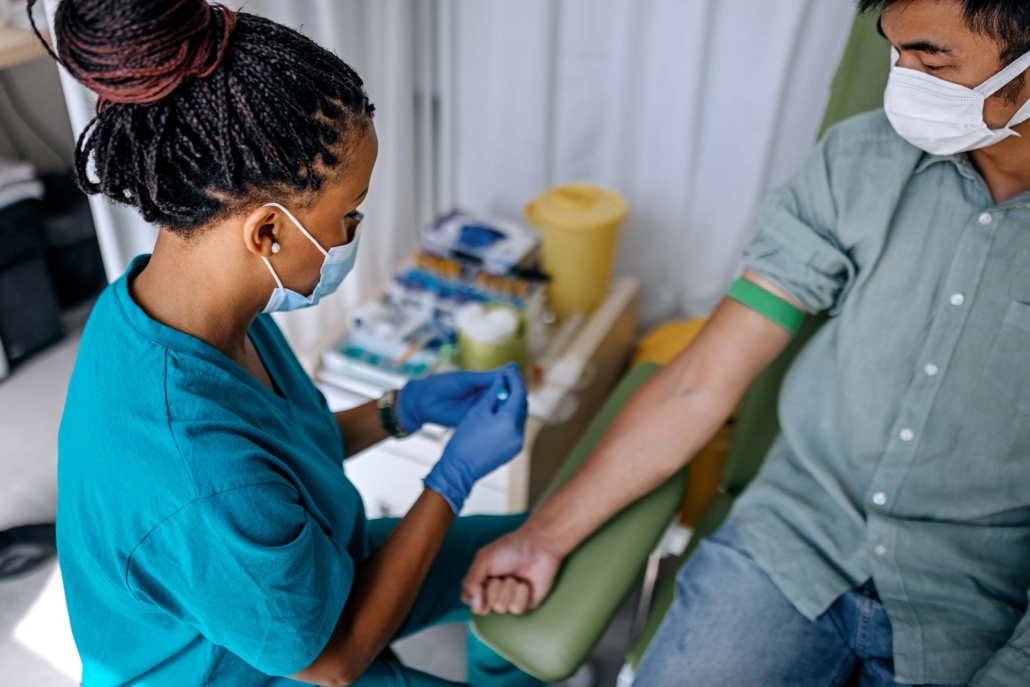What is Hep A?
Hep A is an extremely contagious liver infection caused by a virus that can be easily spread from one person to another. For people with liver disease, Hep A can be very serious, and can lead to liver failure (requiring transplant) or death.
What are the symptoms of Hepatitis A?
The symptoms of Hep A infection usually last less than two months and vary from person to person. But for some people it may take up to 6 months to recover and no longer have the virus. Symptoms usually appear about 3-4 weeks after you have been exposed to the virus.
Common symptoms include:
- Fever
- Fatigue
- Appetite loss
- Nausea
- Abdominal pain
- Diarrhea
- Dark urine
- Yellowing of the eyes or skin.
The virus can be passed to others even if the person who has Hep A doesn’t feel sick or show symptoms.
How is Hepatitis A spread?
The virus is found in feces (poop), even small or trace amounts, of someone who is infected with Hep A. It can spread when these trace amounts of poop get into the mouth, for example, during rimming or anal sex. It’s also possible to get Hep A while sharing certain items, such as certain drug injection equipment or cigarettes. If someone with the virus uses the bathroom or has prepared food, drink, or anything else you ingest without properly washing their hands, they could pass it to you.
Who is at higher risk of getting Hep A?
You can get Hep A at any age, but some people have a higher risk, including:
- Men who have sex with men, especially with multiple sex partners
- People who travel or work in areas of the world where Hep A is common
- People who use or inject drugs
- People who live with someone who has Hep A
- People experiencing homelessness
- People with chronic liver disease, including Hep B and Hep C, and people with HIV, are at higher risk for severe disease if they get Hep A.
No matter your age, if you think you may have been exposed to Hep A, ask your provider about testing.
How can I prevent Hep A?
The good news is there’s a safe and effective vaccine that’s recommended for people who may be at risk for Hep A, including men who have sex with men. You’ll need two doses of the vaccine—usually about six to 12 months apart—to ensure long-term protection. It’s an easy addition to your self-care checklist that can help you protect yourself and your partners.
Think you may have already gotten the vaccine? Ask your health care provider. If neither of you are sure, it doesn’t hurt to get another. And while you’re at it, be sure to ask about getting the Hep B vaccine.
How else can I prevent Hep A?
- Wash your hands after sex, or handling condoms and sex toys
- Use latex condoms for anal sex, and between anal and oral sex
- Use latex gloves for fingering or fisting
- Use a latex barrier for rimming
- Don’t share sex toys and make sure to wash sex toys after use
- Don’t share personal items like towels or utensils
- Always wash your hands thoroughly with soap and water before touching or eating food, after using the toilet, and after changing a diaper. If soap isn’t available, make sure you use hand sanitizer or wipes. Always wash fruit and vegetables before eating them.
- Don’t eat raw or undercooked shellfish.
How do I get tested for Hepatitis A?
If you think you’ve been exposed, talk to your health care provider about testing for Hep A, as well as Hep B, HIV, Hep C, and STDs/STIs. A blood test can detect Hep A.
Looking for a health care provider? Find a provider near you.
Can Hepatitis A be treated?
While there is no treatment for the virus, the infection eventually goes away on its own. Once the virus goes away, it can no longer be passed to others, and you will be immune to Hep A.













